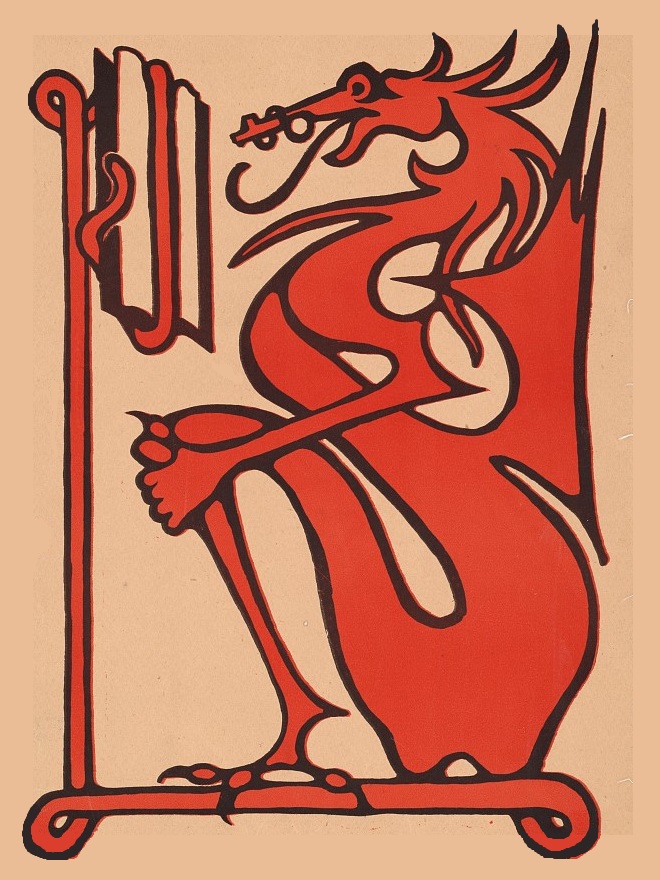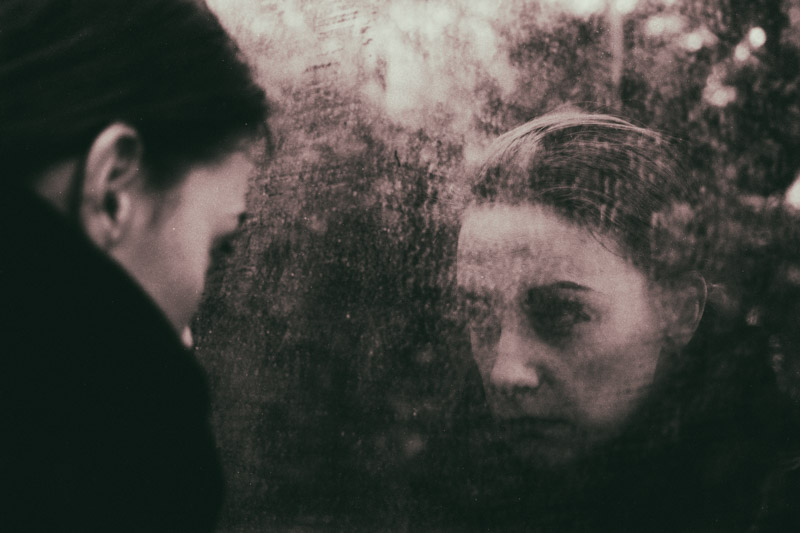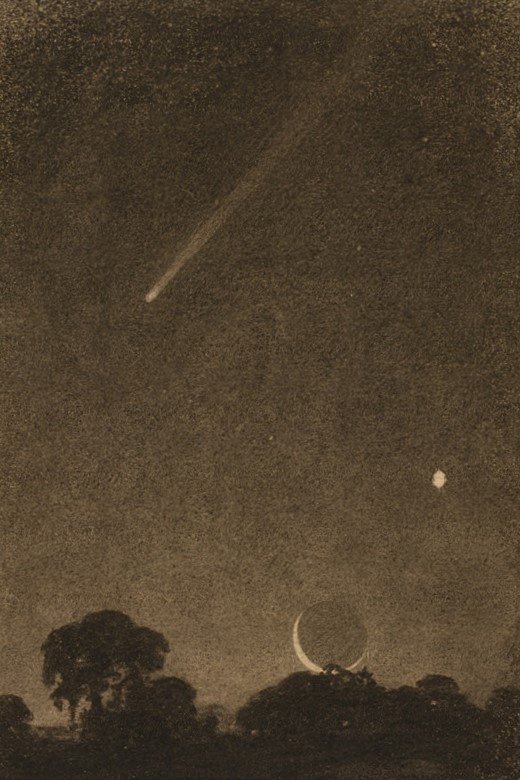There’s something you need to know. Please, please listen. It will be easy to understand. I’ll tell you. I’ll tell you voluntarily. I mean, this story, this specific story, you should really know what it says, I want you to know, and the story is inside me, so I need to let it out; I need to share it with you.
Where did I store that stuff in my brain, again? There’s a lot inside me: things I want here, things I don’t want, things that I call, “myself,” things that I … reject. No! Get away! Stop, stop listening! I don’t want you to know that. Get away.
… where is everyone?
The End. Emotional whiplash, anyone? This has been the tragic story of the stories inside us—really, of the stories that are us. And, because a story becomes a story only when we tell it, when we share it with others (it’s true; this article will not make much sense to those of you who never learned to share when you were children, but that’s fine, I don’t mind writing just for myself), I call this the tragedy of human unity. We got tension, optimism, mystery and drama, but also, from the very beginning, a degree of sweetness. You know: cooperation. You know: vulnerability. You know: intimacy.
And then, the twist! Intimacy turns out to be the one thing in the world we can’t cope with. Yes, human unity is a bitter story. But to feel bitterness, we must first feel hope. Human unity may be a tale of potential refused, but it is a tale of great potential, refused. Children’s books teach, instruct, model. So human unity is the possibility of potential—maybe not in our benighted time and place, but someday, somewhere, in the soft, fumbling hands of generations yet to Z. This, I think, is how Bruce Coville conceives of it. Closeness, acceptance, cooperation; I would say these things are like death, in that only those who have reached that moment, know what it’s like. Coville would say they’re like the stars, in that together we are destined to travel there, and experience wonders.
My claim in this article is that Coville structures all of his novels (Coville’s corpus) as expositions on the tragedy of human unity. My claim is that he does this, not based on some analysis, but because he can’t help it, because his honest assessment is that everyone who has ever lived and ever will live, experiences the same tragedy. What, the narrative asks the writer, what is a person? And the writer replies (Coville’s catechism), a person is one who has refused intimacy and lived to regret it.
You can see why this idea would motivate someone to write children’s books. A story can be a warning: when you refuse intimacy, you’re going to feel pain. When you try to share but your personal boundaries are unclear, you’re going to panic; you’re going to push the other person away. A story can be sympathy: the need to share is understandable; the need for privacy is also understandable. A story can be forgiveness: everyone pushes others away sometimes; everyone regrets it; it doesn’t make you a bad person.
You can see why, specifically, this idea would motivate someone to write science fiction in the pulp sub-genre (Coville’s camp). The tragedy, put another way, is that each of us has this stellar—yes, this galactic potential, no less than some cheesy action hero, yet we are as vulnerable as a cybernetic intelligence in its first hour of self-awareness. The tragedy is that we are as distant from each other as distant stars. Our potential when we do cooperate is mind-boggling—what revolution we have in store when we are able to do it a little more often! What will the world be like when that day comes?
Speaking of mind-boggling, very little reading between the lines is necessary to discern the common theme of (tragic, potential) human unity across many novels, because it is marked very clearly with a recurring motif, sometimes called in-world by the colloquial name, telepathy. The Monsters of Morley Manor features body-stealing, which causes telepathy. In the Unicorn Chronicles, unicorns communicate exclusively via telepathy. In Jeremy Thatcher, Dragon Hatcher, the main relationship thrives on telepathy and the story concludes by reinforcing this image. The Rod Albright books feature numerous telepaths, a school that trains telepathy, a long episode of body-sharing that is also non-verbal, and technology-aided telepathy. In the My Teacher is an Alien series, apparently all earthlings are self-deactivated telepaths, requiring only a little therapy to ease open the valve on the brain’s transceiver, plus, this fact is revealed after numerous discoveries of telepathic abilities between various human-alien pairs.
Every one of these examples displays the tragic structure: first, the need for connection; second, introspection interrupted by panic; third, loss.
So I would go so far as to say that, in these works, telepathy is a symbol for the tragic potential of human unity. It is a one-to-one mapping (Coville’s convention).
Briefly, let’s name a handful of scenarios where the tragedy of human unity does not describe the human experience in any relevant way. One is when people experience racial difference. Do black Americans feel a need, a primal urge, to share their inner selves with white Americans? If they do, that’s a shame because no one is listening. If not, that would only make sense; in fact, an urge to slap white people in the face might make more sense. And then, do white people reach out to black people? Far from it; at the best of times, they have myriad ways of holding them at arm’s length; other times, they reach out with a loaded gun.
Coville rarely treats this dynamic directly, which is probably appropriate for a white American writer. There is one large exception: the case known as assimilation. For readers unfamiliar with assimilation, this word describes a segregated town where white people, using money collected at gunpoint from the forced labor of black people (but surely that was all long ago1), establish great material comfort in a context they are pleased to call “mainstream culture,” and violently and illegally attempt to exclude black people from that comfort, but where, despite everything, one or two percent of the population2 are black people who have slipped through the gates and now are allowed to survive more or less side-by-side3 with everyone else, provided they do not look, act or sound too black. White people who live in the ghetto, obviously, are not an example of assimilation.4
No; assimilation would be the trope of the black best friend. Coville has written one or more black best friends. When the tragedy of human unity—opening up versus drawing away—is in question, his black characters experience the same drama at the same time on the same topics as other characters, which is a choice that could be criticized as gaslightey, that is, the fiction says to the reader, “Ongoing harm is not going on.” But it is also a choice that highlights with laser-like focus the idea of human unity.
This article is descriptive, not prescriptive. Perhaps the same stories could have been better told with different tropes; who knows? To avoid the topic of race is obviously not a good solution. Most of Coville’s novels, while not as whitewashed as the fiction he grew up with,5 is still whiter than the America he lives in; then again, perhaps his fiction accurately represents the towns and counties he has lived in, which, again, can only honestly be described as segregated. But in fiction, this choice also minimizes black culture and black community and racist harm.
In contrast, separate from or in combination with race, human unity can also be interrupted by gender, and Coville treats this scenario often, almost constantly. Again, perhaps appropriately for a male writer, he opts for equivalence more often than contrast. In his novels, girls walk, run and fight the same, play the same sports, and study the same topics in school as boys; they also struggle with the same emotional tragedy. The intention is obvious. The uniqueness of individuals, Coville points out, is enough to stage the tragedy of human unity, regardless of these racial and gender divisions that group us and divide us chaotically and without our consent. People reach out and shrink away over and over again; we also die; but we also give each other respect, nurture and understanding in a few brief shining moments that make the rest of this mess all worthwhile.
Finally, speaking of living out the same pattern over and over again, speaking of nurture, let’s draw the crucial, subtle thread that links human unity and Coville’s at times almost egoistic obsession with the word, “teacher.” What is this creature, Teacher (Coville’s coaches), and what planet do they come from?
Well, who cares what planet they’re from, as long as they have something to say about the things that matter to us? Occasionally Coville’s many (many) teacher characters tell the protagonist, fun is somatic, or, fun is magic. This is beautiful, but risks a veer toward dogma. Can a teacher ever be more like a suggester, a fellow student, an equal? That happens when Coville’s teachers attempt to help the protagonist with the tragedy of human unity. In those moments, teacher and child are equals because they feel, again as if leveled with a laser and then pinpointed with another laser, the same pain.
We’ve all witnessed it. Sometimes people feel the same joy, the same hope, the same pain, about two different topics or flowing from events of two different times. Sympathy is not in itself the human unity we’ve been talking about, more like commiseration, the actualization of our potential potential. Coville’s child heroes never look up with wide eyes and say, “I win?” But one of the little terrors looks up in every story—sometimes every chapter—and says, “Human unity is possible?” They’ve probably given themselves a crick in the neck at this point is his career.
Those of us readers who, like the teacher among equals, have lived the tragedy of wasted potential many times and have noticed the pattern, feel sympathy when the teacher gives Coville’s characteristic response. Just about the only objective fact about earthlings is that human unity is, and, except for a few lucky people for a few lucky moments, always has been and might always be, a distinct possibility. They tell the child this, and they tell them that the possibility is worth living for, worth striving for, worth anything, worth everything.
- It was not—is not—it is now. ↩︎
- (but never a representative proportion) ↩︎
- less ↩︎
- One wonders if something is wrong with them; even their black neighbors are concerned. Some of them used to get hired to breakdance for Disney—oh; no, my mistake; those were conservatory students who grew up in the suburbs; it was only on TV that they played characters who were reverse-assimilated. ↩︎
- We know; he’s written about it. ↩︎



